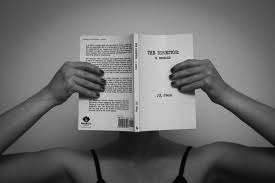
By Audrey Gutierrez
It has been impossible to avoid the onslaught of stories of sexual harassment and assault from the #MeToo movement. While these problems whave always existed, they have only recently been widely addressed by the majority of the United States through various news outlets. An overt example of this is the Harvey Weinstein scandal. The #MeToo movement is not a one that exists solely because of Hollywood, but its recent attention has sprung from the industry. Celebrities and others who have been connected to the entertainment industry are amongst the many people who have decided to take a stand. One such brave soul is J.K. Stein. It is a perfect time for her book “The Director: A Memoir” to enter this conversation.
“The Director: A Memoir” could run the risk of sounding cliche, if it wasn’t real. It describes Stein, who at this point in her life is a young college dancer, in a sexually abusive relationship with a famous skeezy Hollywood director. It is told in the form of her diary entries over a five-year span. At the same time, Stein struggles with getting over her anorexia and suffers through an abusive relationship with another Jewish student named David. Her Jewishness is sexualized and addressed many times throughout the book. David and the Director both continuously remark on the Jewishness they share with her as another way to control her.
The book is by no means easy to read. It is told with clarity and rawness. Stein does not spare the audience when she describes being talked into rubbing an overweight director’s nipples while he masturbates, or committing “verbal prostitution.” If you are triggered by things like sexual abuse and manipulation, you would do well to avoid it. I am, but I read it anyway and I am glad I did. Shying away from traumatic events can only be successful for so long before it becomes a permanent latent problem, and Stein addresses this well. The memoir is worth reading now more than ever.
Why is it worth reading? It shows the ways in which powerful megalomaniacs prey on insecure young women. She and the Director meet for coffee and he probes for information about her sex life, asking how frequently she masturbates. She is hesitant to respond, but he is insistent. He continuously promises her she will be one of the main stars in his upcoming film. These empty promises keep her committed to meeting up with him in expensive hotel rooms at all hours of the night. He knows just what to say to get her to do what he wants, punishing her whenever she does not listen. It is an experience many women have had, but one that has been ignored too many times to count. It asks how a normal person could find themselves in a situation like this and continue to participate in this pattern. Stein does not do it because she wants to, but because she feels like she has to. Women are consistently made to feel guilty in our society, to take responsibilities for any possible criticisms they are faced with rather than denying them, and this is why coercion can be so successful.
After a little bit of digging, it seems possible that the man referred to as “the Director” in Stein’s story is a repulsive individual named James Toback. He directed “The Private Life of a Modern Woman,” “Bugsy” and many other films. He went to Harvard. He is good friends with Alec Baldwin and over 6 feet tall and large. All of these factors combined can show how he would be an intimidating presence. According to The Guardian, at least 395 women have accused him of sexual assault and/or harassment. Only 31 have gone on record, which speaks less to the truth of the matter than it does to the climate of fear regarding speaking out against assault. It is a climate J.K. Stein has braved with her memoir.
It is not always well-written, but that can be excused as it is told from her diary and its honesty makes up for it. The story mentions her anorexia numerous times, but mostly repeats what she has already said. I would have liked it to go a little deeper with this, but understand why she wanted the key focus to be sexual abuse. Stein experienced something terrible and instead of backing away from it, chose to share her own story in the hopes that it would prevent others from having the same experience. In doing so, she asserted that her interactions with the Director and her boyfriend are not what defined her. They were a brief, painful trial she and many other women were made to undergo. It is a trial amongst many others that is no longer being ignored.
Subscribe to the Mossy Log Newsletter
Stay up to date with the goings-on at Lewis & Clark! Get the top stories or your favorite section delivered to your inbox whenever we release a new issue.

Leave a Reply